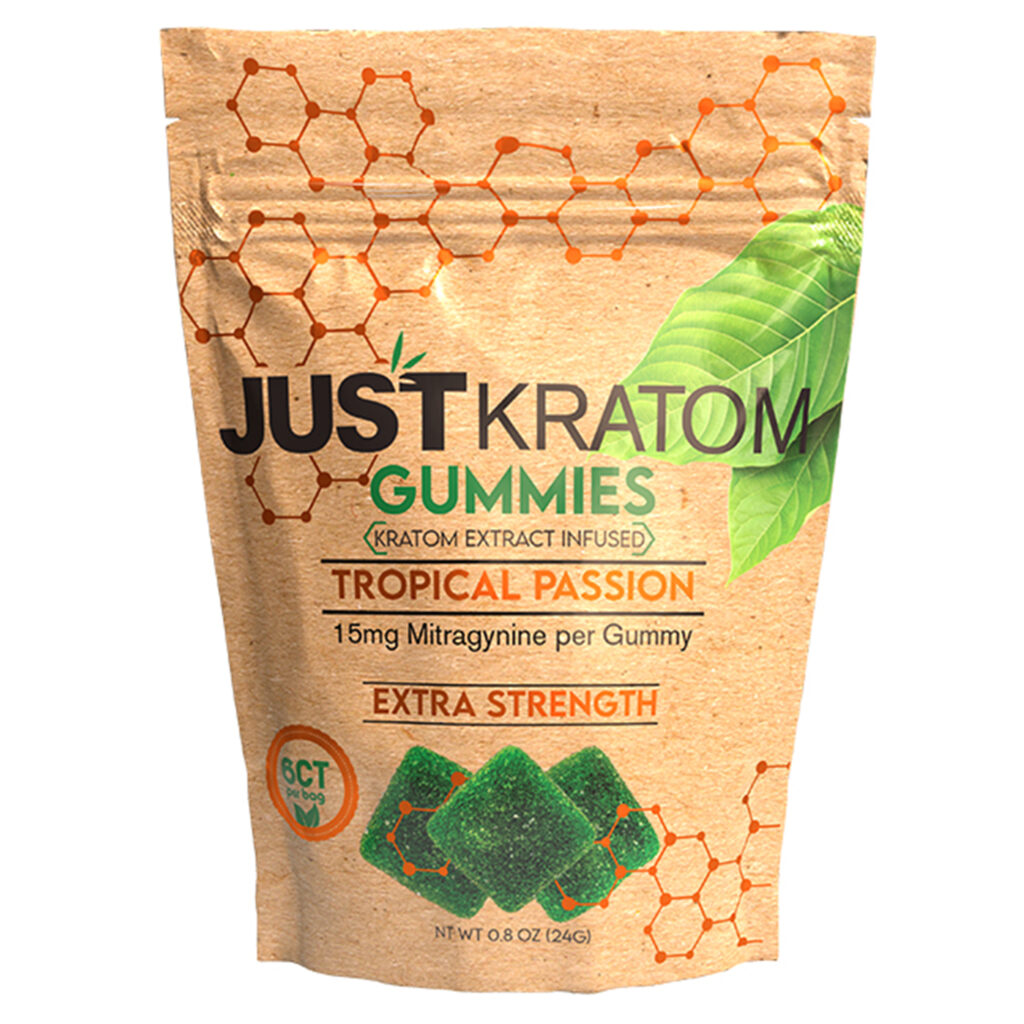Kratom Gummies
Kratom, a tropical tree native to Southeast Asia, has gained popularity for its potential medicinal and recreational effects. It’s available in various forms, including gummies and tea, each offering a unique experience. While both provide the benefits of kratom alkaloids, they differ in absorption rates and onset times.
Absorption and Onset
Kratom gummies offer a faster onset time compared to kratom tea. This is because gummies are absorbed directly into the bloodstream through the digestive system, bypassing the initial breakdown process that occurs when kratom is ingested as tea.
The effects of kratom gummies typically kick in within 30-60 minutes, while kratom tea may take up to 1-2 hours to produce noticeable effects. This faster absorption rate makes kratom gummies a popular choice for those seeking quick relief from symptoms or wanting a more immediate experience.
Factors Affecting Absorption Time
Several factors can influence the absorption time of kratom gummies. The dosage plays a significant role; higher doses may take longer to be fully absorbed. The individual’s metabolism also affects absorption rates, as some individuals metabolize substances faster than others.
The composition of the gummies themselves can also impact absorption time. Gummies containing added ingredients like sweeteners or flavorings might slightly delay absorption compared to pure kratom extract gummies.
Finally, factors like stomach acidity and the individual’s overall digestive health can influence how quickly kratom is absorbed from the gummies.
Pros of Kratom Gummies
Kratom gummies provide a faster-acting alternative to traditional kratom tea.
This quicker absorption rate stems from their direct delivery into the bloodstream through the digestive system, bypassing the initial breakdown process that occurs with tea.
The result is a noticeable difference in onset times; gummies typically take effect within 30-60 minutes, while tea might require 1-2 hours to produce similar effects.
Cons of Kratom Gummies
While kratom gummies offer several advantages, there are also some potential downsides to consider. One concern is the inconsistent dosage of alkaloids in gummies. Unlike standardized kratom tea where the amount of active compounds is more predictable, gummy doses can vary significantly between brands and even within batches.
This inconsistency makes it harder to control the desired effects and increases the risk of overconsumption or experiencing unwanted side effects.
Another potential drawback is the presence of added ingredients like sweeteners, flavors, and artificial colors in some kratom gummies. These additives can interfere with the absorption of kratom alkaloids or trigger allergic reactions or sensitivities in some individuals.
It’s essential to choose high-quality gummies from reputable brands that prioritize transparency about their ingredients and manufacturing processes.
Lastly, it’s important to note that long-term effects of consuming kratom regularly, especially in gummy form, are not yet fully understood.
More research is needed to determine the potential risks associated with prolonged use and potential for addiction or dependence.
Kratom Tea

Kratom, a tropical tree native to Southeast Asia, has gained popularity due to its potential medicinal and recreational effects. It’s available in various forms, including gummies and tea. This comparison explores the differences in absorption rates and onset times between these two popular methods of consuming kratom.
Absorption and Onset
Kratom gummies offer a faster onset time compared to kratom tea because gummies are absorbed directly into the bloodstream through the digestive system.
This bypasses the initial breakdown process that occurs when kratom is ingested as tea. As a result, the effects of kratom gummies typically kick in within 30-60 minutes, while kratom tea may take up to 1-2 hours to produce noticeable effects.
Several factors can influence the absorption time of kratom gummies. Dosage plays a significant role; higher doses may take longer to be fully absorbed. Individual metabolism also affects absorption rates.
The composition of the gummies themselves can impact absorption time as well. Gummies containing added ingredients like sweeteners or flavorings might slightly delay absorption compared to pure kratom extract gummies.
Finally, stomach acidity and overall digestive health can influence how quickly kratom is absorbed from the gummies.
Factors Affecting Absorption Time
The absorption time of kratom tea depends on several factors. The brewing method, leaf quality, and individual metabolism all play a role.
For example, longer steeping times generally result in higher alkaloid extraction, potentially leading to faster-acting effects.

Similarly, the type of kratom leaves used can influence absorption rates.
Certain strains are known for their quick onset times, while others may take longer to produce noticeable effects.
Individual metabolism significantly impacts how quickly the body processes kratom alkaloids.
Factors like stomach acidity and digestive health can also affect absorption rates.

Pros of Kratom Tea
Kratom tea offers a number of potential benefits, including pain relief, reduced anxiety, and improved energy levels.
It is often used to manage chronic pain conditions, such as arthritis and fibromyalgia.
The alkaloids in kratom are thought to interact with opioid receptors in the brain, producing analgesic effects.
Kratom tea can also be helpful in reducing anxiety and stress.
It may promote relaxation and improve mood by affecting neurotransmitter levels in the brain.
Additionally, kratom tea has been reported to boost energy levels and combat fatigue.
Cons of Kratom Tea
While kratom can offer potential benefits, there are also some downsides to consider when consuming it as tea. One concern is that kratom tea’s effects may be less predictable compared to standardized doses found in capsules or gummies.
The potency and alkaloid content can vary depending on factors such as the type of kratom leaves used, the brewing method, and the length of steeping time.
Additionally, kratom tea can sometimes cause gastrointestinal discomfort, such as nausea, diarrhea, or stomach cramps, particularly when consumed in larger amounts.
Another potential drawback is the bitter taste that some people find unappealing.
It’s important to start with a low dose of kratom tea and gradually increase it as needed to determine your tolerance and desired effects.
Individuals with pre-existing medical conditions or who are taking other medications should consult with a healthcare professional before using kratom, as it may interact with certain drugs or worsen existing health issues.
Which Works Faster?
Kratom gummies offer a faster onset time compared to kratom tea. This is because gummies are absorbed directly into the bloodstream through the digestive system, bypassing the initial breakdown process that occurs when kratom is ingested as tea.
The effects of kratom gummies typically kick in within 30-60 minutes, while kratom tea may take up to 1-2 hours to produce noticeable effects.
Shop Kratom Gummies with Just Kratom
- Xela Rederm Skin Booster Treatments Near Morden, Surrey - January 5, 2026
- Xela Rederm Skin Booster Treatments Near Bourne, Surrey - January 3, 2026
- Why The Craftsman Series Vape Is A Must-Have For Flavor Chasers - December 31, 2025
